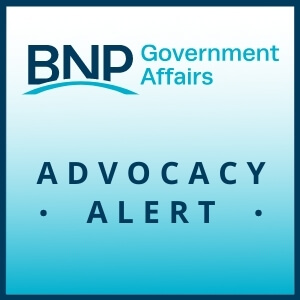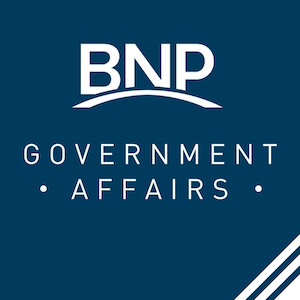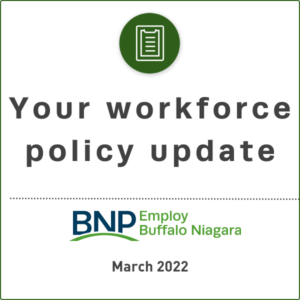11.15.21 Advocacy Alert: BIDEN SIGNS INFRASTRUCTURE INVESTMENT BILL
Blog Categories
November 15, 2021
Historic Bill Signed
On November 15th, President Joe Biden signed the bipartisan Infrastructure Investment and Jobs Act into law.
The BNP advocated for this important legislation, which will make critical investments in our roads, bridges, water infrastructure, electric grid, and broadband while allowing our community to pursue landmark projects. Importantly, the bill makes these investments without raising taxes.
This legislation will provide numerous benefits to our regional and national economies. Learn more about this bill and the BNP’s efforts here.
The BNP thanks Sen. Chuck Schumer, Sen. Kirsten Gillibrand, Rep. Tom Reed, and Rep. Brian Higgins for their support of this bipartisan legislation.
As we move into 2022, the BNP will be focused on advocating for an efficient, effective distribution of funds that meets our region’s needs and makes transformational projects possible.
What About the Reconciliation Bill?
The President’s decision to sign the bill today is an interesting twist in the ongoing negotiations on the “Build Back Better” reconciliation bill, the Democrats’ $3.5 trillion social spending package.
The reconciliation bill and the bipartisan infrastructure bill, to this point, had been discussed in tandem. Speaker Pelosi attempted to link the bills in order to secure (a) progressive support for the bipartisan infrastructure bill and (b) moderate Democrat support for the reconciliation bill. Her thinking was that moderates may hold their noses and vote for reconciliation if they knew it would result in them getting their way on infrastructure.
However, the President’s signing of the infrastructure bill may change their calculus. With the moderates’ desired bill already signed into law, Biden and Pelosi lose leverage to force their hand on the reconciliation vote.
Since House Republicans are expected to oppose the reconciliation bill in unison, four defections from the 221-member Democratic caucus could sink the bill.
Many moderate Democrats have already expressed concern about the cost of the reconciliation bill, telling the Speaker in a letter last week that they will not consider voting for the bill until the Congressional Budget Office scores the legislation.
Still, at today's bill signing, Speaker Pelosi appeared optimistic that the reconciliation bill would eventually pass.
The reconciliation bill has been heavily opposed by the U.S. Chamber of Commerce, who notes that the bill includes massive tax increases and some problematic policy changes.
The BNP will keep you informed of any updates regarding the reconciliation bill.
Related Posts
3.17.22 Advocacy Alert: Hochul Extends State of Emergency, Signs Sexual Harassment Bills
Governor Kathy Hochul has issued an Executive Order extending New York’s state of emergency declaration for COVID-19. The state of emergency was scheduled to expire today, but Hochul extended the declaration through April 15.
Empire Center: Single Payer “Sticker Shock”
A new report from the Empire Center for Public Policy details how expensive a single payer healthcare system would be in New York. The full report is available here.
Workforce Policy Update March 2022
The BNP works closely with government leaders to keep them informed of employer challenges and to advocate for policy that would ease the workforce crisis. The BNP supports legislation that expands access to education and training, makes quality childcare more accessible, removes barriers to workforce participation, and reforms our immigration system to meet our region’s workforce needs.
What is Carbon Pricing?
In the New York State Climate Action Council’s Draft Scoping Plan, the Council recommends implementing some form of carbon pricing to help the state combat climate change. So, what is carbon pricing, and how would it impact New York?




